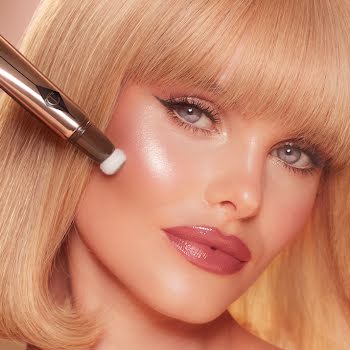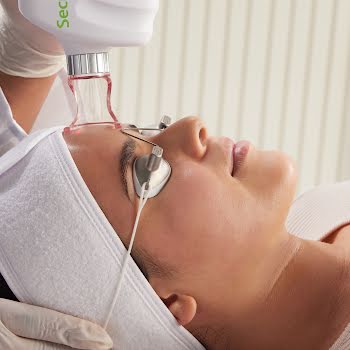
By Melanie Morris
08th Jul 2021
08th Jul 2021
While skin ingredients may come and go, vitamin C has long been hailed as a solution for anti-ageing and gorgeous, glowing skin, but it’s extremely volatile.
Vitamin C is like happiness: Both make life and living so much better, both can be enjoyed in infinite quantities, and both help you look like the best version of yourself. However, just like happiness, vitamin C can’t be stored – you can’t bank some for when you need it – so you spend your life in pursuit of it, but the benefits are multifold.
Vitamin C, in the form of ascorbic acid, works across so many of our body’s systems – protecting our cells, building our bones, skin and blood vessels, boosting immunity and helping our organs function. It has aesthetic benefits too. No wonder it’s become the latest hero ingredient in beauty.
“Vitamin C has actually been around a long time,” says consultant dermatologist Dr Rosemary Coleman,“but it has probably caught on and gained popularity because it works; I have often witnessed visible improvements in patients’ skin from regular use of vitamin C. Its main benefits are as an antioxidant, it stimulates collagen formation and wound healing, lightens the skin, and it fades hyperpigmentation, thus improving the appearance of photodamage.” Vitamin C also gives an instant glow to the skin, when topically applied.
So, why isn’t vitamin C in every skincare product under the sun? Possibly because it’s notoriously difficult to produce. “Vitamin C has quite a complicated chemistry,” says Dr Coleman,“and because it’s a water-soluble vitamin, it becomes very unstable in water solutions. Additionally, vitamin C doesn’t penetrate the skin easily, it degrades on exposure to oxygen, and it favours a pH around three, which is too acidic for human skin.”
So, to be of actual cosmetic use, scientists have had to spend a lot of time and money in ensuring their formulations work, and continue to do so once opened. “Just because a company throws some vitamin C into their concoction doesn’t mean it is actually active,” says Dr Coleman. “The true proof is whether your skin looks better after about six weeks and whether you’d buy the product again.”
The more stable form of vitamin C is the ester, eg. ascorbyl palmitate or tetrahexyldecyl ascorbate (there are lots of different names), which are very effective in a serum or lotion. The water-soluble forms of vitamin C work in an emulsion, but these have a very short shelf life. This is why some products (such as the Juliette Armand and Clinique versions) come as a powder, which have to be used quickly once they’ve been mixed with the carrier cream or serum. The ester forms of vitamin C, the already liquid ones, should be stored in a dark (it is light sensitive) bottle with a pump dispenser, so that it doesn’t get exposed to oxygen.
And if you want to amp up your vitamin C products further? “I believe vitamin E and C work synergistically to increase their antioxidant properties, which is why they’re commonly found together,” says Dr Coleman, referring to products like SkinCeuticals CE Ferulic. “Beta-carotene also improves them further. Iron (ferulic acid) can also help stabilise vitamin C and is an antioxidant in itself.”
As we finally say goodbye to winter, it’s the perfect time to try introducing a shot of vitamin C into our skincare regime. A week or ten days of an intense treatment will bring glow back to the skin, while longer-term use of an ester-derived vitamin C will bring the added benefits of boosting collagen production, protecting the skin from stress and environmental damage whilst fading discolouration. But where beautiful skin is concerned, remember Rosemary Coleman’s very wise words: “Overall, the best curative and preventative treatment out there beyond a doubt is still photoprotection, 365 days a year. Wear SPF. If we could get teenagers to take that on board, they’ll have far better skin than us in their fifties.”
Photography by Jason Lloyd Evans.























